Is Chocolate Healthy? 8 Surprising Answers to Questions About Chocolate
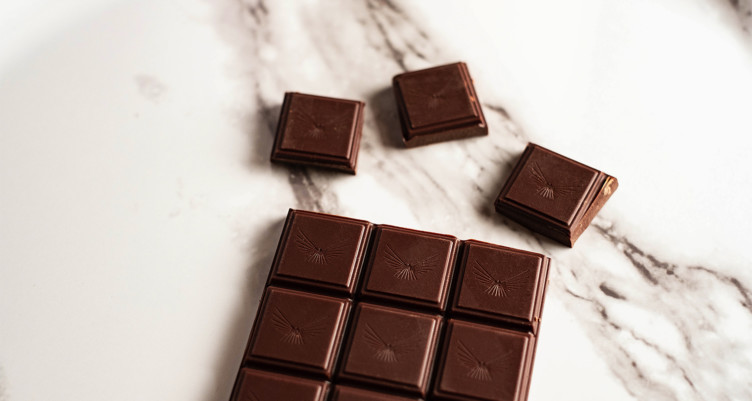
- Chocolate is considered unhealthy by some and a superfood by others. (We consider it delicious.) But is it good for you or not?
- Chocolate can be a nutritious snack or dessert, but quality matters. It’s important to read nutrition labels, double-check ingredients and keep an eye out for added sugar.
- So, is chocolate healthy? Below, you’ll find the surprising answers to some common questions about this delicious superfood.
There’s so much to love about chocolate. That rich taste, signature smell and many different flavors are what keep people coming back for more. But chocolate isn’t healthy for you because it’s loaded with sugar…right? Not exactly. In fact, you can think of certain types of chocolate as a legit health food.
There’s a lot more to know about chocolate than you think. Below, you’ll find the surprising answers to common questions about chocolate, plus tips to enjoy more of chocolate’s health benefits.
1. What percentage of dark chocolate is healthy?
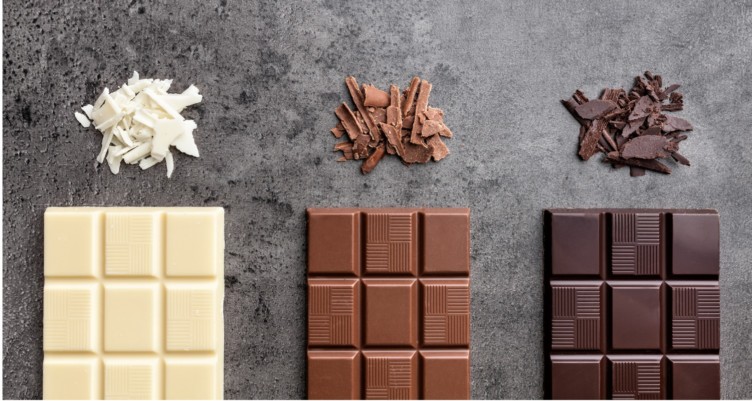
“Percentage” refers to the amount of cocoa in a piece of chocolate, not the amount of chocolate you consume. You reap more nutritional benefits when you enjoy chocolate that contains a higher percentage of cocoa and minimal extra ingredients, like added sugar, dairy and vegetable oil.
In comparison to milk chocolate, dark chocolate contains more cocoa, which naturally contains in flavonoids. It’s also higher in fiber and various vitamins and minerals, like iron, potassium and magnesium.[1] We recommend consuming dark chocolate with a higher percentage of cocoa (which can be found by reading the packaging) in order to reap more of the health benefits of chocolate.
A Bulletproof Sea Salt Dark Chocolate Bar contains 63% cocoa, MCT oil for sustained energy and no artificial sweeteners or sugar. Whether you break off a few squares for nibbling or you use it to make a batch of Keto Thin Mint Truffles, you truly can’t go wrong.
2. Is chocolate good for your skin?
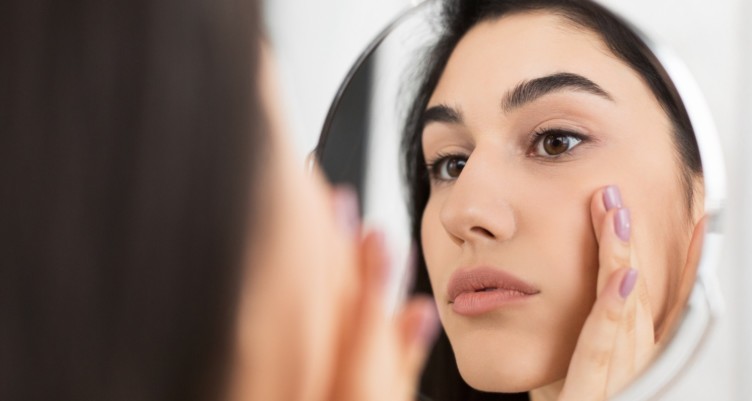
There are plenty of skincare routines out there, but have you ever tried chocolate? (No, this isn’t your cue to start rubbing chocolate on your cheeks.)
When consumed, many of the nutrients found in chocolate can help your skin prosper. Take calcium, for example: Calcium helps your body repair and renew skin, and cocoa in dark chocolate naturally contains calcium.[2]
In a 2009 study published in the Journal of Cosmetic Dermatology, researchers focused on antioxidants in dark chocolate and how they affect the body.[3] The study found that consuming a 20-gram serving of chocolate daily rich in cocoa flavanol antioxidants could be helpful in protecting the skin from the harmful UV rays emitted by the sun. Though it may seem odd, dark chocolate most definitely supports your skin and overall wellness.
3. Does chocolate give you energy?

Chocolate contains trace amounts of caffeine, but generally not enough to make you wired. In fact, unless you’re sensitive to caffeine, the amount found in your typical bar is so minimal that it shouldn’t affect your ability to fall asleep.
Chocolate also contains theobromine, a molecule related to caffeine. It can have some mildly stimulating effects, but not nearly the punch that caffeine can have.
What really contributes to a boost in energy is sugar. Some chocolate bars are packed with added sugar. Too much of the good stuff may spike insulin and lead to a subsequent crash. Not to mention, sugary foods can feed cravings, impact brain function and make you feel sluggish over time. Like with other foods, quality matters. If you’re looking for a sweet pick-me-up without tanking your energy, look for chocolate that contains little to no added sugar.
All three varieties of Bulletproof Chocolate Bars are sugar-free and equally delicious. Plus, they contain MCT oil as a source of ketone energy.
Related: Sugar Detox: What to Do When You’ve Had Too Much Sugar
4. Does chocolate relieve stress?
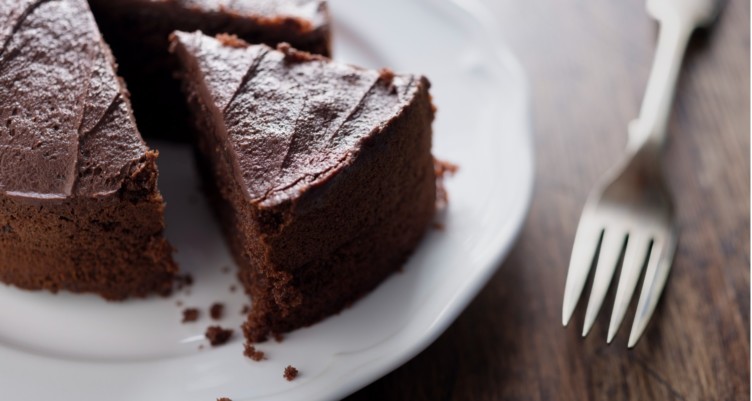
Eating chocolate isn’t going to suddenly remove all of the stressors from your life (although, one can dream). But it might support your body’s response to stress. The ingredient to thank for that is cocoa solids, a source of flavanol antioxidants.
A 2014 study published by the International Journal of Health Sciences found that cocoa solids actually contributed to a healthier response to stress.[4] Based on surveys conducted among 60 medical students, the cocoa solids in dark and milk chocolate were associated with reduced levels of stress hormones cortisol and epinephrine. Lower levels of these stress hormones contribute to reduced feelings of stress. Pretty cool, right?
The researchers note that the sample size was small and based on self-reported information, so we can’t say for sure that chocolate definitively reduces stress. But if you want to add chocolate to your self-care toolkit, reach for high-quality dark chocolate, which is higher in cocoa solids than milk chocolate. (And skip white chocolate, which doesn’t have any cocoa solids.)
Related: A Life Coach Discusses How to Address Stress and Sleep
5. How much chocolate is too much?
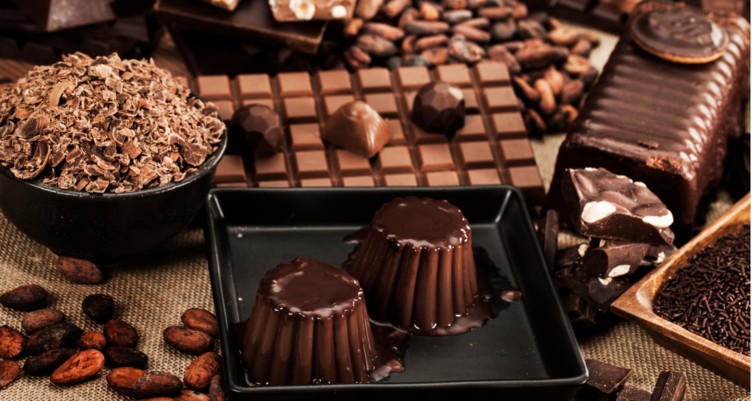
It’s possible to have too much of a good thing. Unfortunately, chocolate consumption is no different. Besides the effects consuming a large amount of chocolate would have on your diet and energy, eating copious (and we mean copious) amounts of chocolate could potentially be very harmful.
Theobromine, which is found in the cocoa beans from which chocolate is made, is a mild stimulant (similar to caffeine). It’s also a vasodilator and has some diuretic properties, which means it affects blood flow and causes the kidneys to make more urine. When you consume too much theobromine, these attributes can cause rapidly lower blood pressure and an increased heart rate.
No need to worry, though. In order to reach that point, you’d need to consume hundreds of bars of chocolate, and an upset stomach would more than likely stop you before you even made it to double digits.
6. Is cocoa butter chocolate?
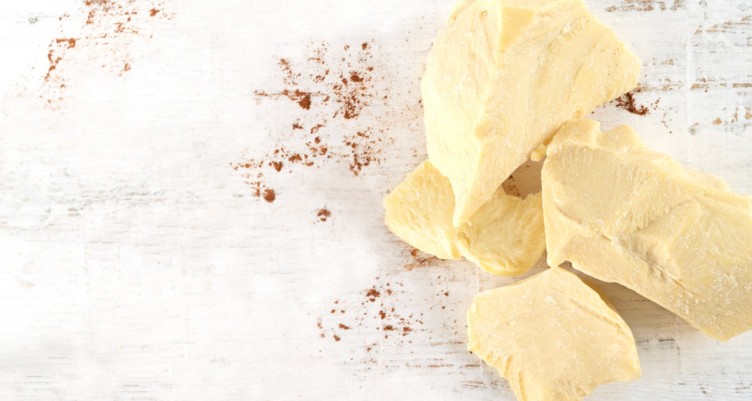
No, cocoa butter isn’t chocolate. Also called cacao butter or theobroma oil, cocoa butter is derived from the cocoa bean. However, it lacks the cocoa solids which would define it as an actual chocolate. It’s dairy-free and considered a vegetable fat, but it’s full of stable saturated fats and delivers a chocolate-like aroma. It’s used in everything from baking to skin care.
Related: How to Use Cacao Butter, the Keto-Friendly Fat Your Diet Needs
7. Is white chocolate good for you?
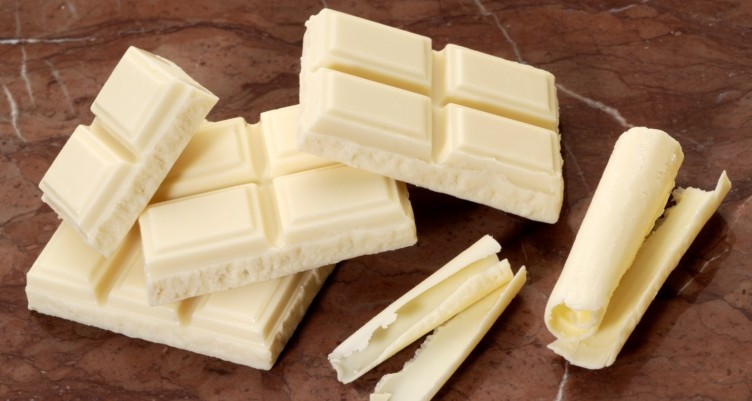
Foods aren’t necessarily “good” or “bad,” but their ingredients make all the difference. Such is the case with white chocolate. The name is a misnomer; it doesn’t contain any chocolate at all.
Generally, white chocolate is loaded with sugar, milk products, artificial flavors, sweeteners and unhealthy oils, without any of the cocoa solids that give dark and milk chocolate its health benefits. If you enjoy and tolerate white chocolate, have it in moderation.
8. Is it OK to eat chocolate every day?
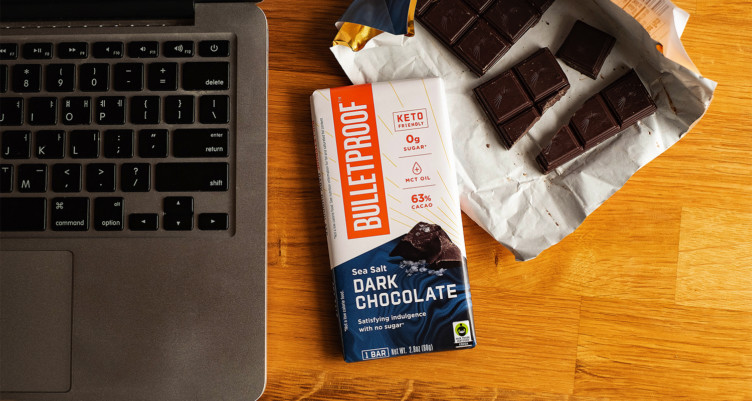
If you want to eat chocolate every day, we’re probably not talking about any old candy bars you find lying around. Before you eat it daily, take into account the amount of sugar your chocolate contains, what ingredients are used, how much cocoa is present and if the caloric intake fits into your overall health goals.
As mentioned above, dark chocolate is a veritable superfood, and because it naturally contains fiber, vitamins, minerals and antioxidants with minimal carbohydrates, it can fit into many people’s daily diets. Opt for dark chocolate with higher cocoa content and less sugar. Or, if you prefer things a little lighter, a Bulletproof Almond Milk-Style Chocolate Bar or a Bulletproof Original Milk-Style Chocolate Bar will provide that smooth and creamy deliciousness you’re seeking.
Just remember: If you enjoy sweeter chocolates or conventional candy, moderation is key.
The bottom line: Chocolate is a delicious superfood, but not all chocolate is created equal. Make sure you’re reaching for high-quality chocolate to reap more of its benefits. Pay attention to the nutrition label, and keep an eye out for ingredients like added sugars or dairy. And remember, as with all good things, moderation is key.
Now that you have a better understanding of chocolate, you can make an informed decision next time you get a sweet craving. If you want to know more, read about the health benefits of chocolate.
Sign up for early access to sales, product launches, the latest Bulletproof news and more!



